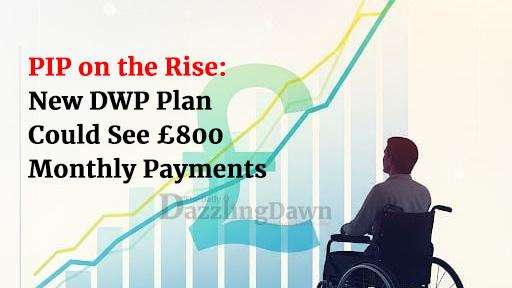Millions of disabled individuals across Great Britain could be on the verge of a significant financial boost, with the Department for Work and Pensions (DWP) confirming plans to increase Personal Independence Payment (PIP) from April 2026. The move, aimed at aligning benefits with the rising cost of living, could see top-level payments reach nearly £800 a month.
The DWP has stated that the annual uprating will be based on the Consumer Prices Index (CPI) inflation rate. Based on the most recent figures from the Office for National Statistics (ONS), the July CPI inflation rate was 3.8%. If this rate holds, those on the highest level of PIP—comprising both the enhanced Daily Living and enhanced Mobility components—could see their monthly payments rise from £749.80 to £778.20, an increase of approximately £28.40. It is crucial to note that the final uprating figure will not be confirmed until the August and September inflation data is released by the ONS in mid-October, with the official announcement expected at the Autumn Budget.
This adjustment will affect more than 3.7 million people in Great Britain who depend on PIP to help cover the additional expenses associated with a disability or long-term illness. A similar scheme, the Adult Disability Payment (ADP), supports an additional 476,200 individuals in Scotland. The payment is composed of two parts, Daily Living and Mobility, with a claimant's entitlement determined by how their condition affects their daily activities. To be eligible, applicants must demonstrate that their difficulties are expected to last for at least nine months.
A DWP spokesperson emphasized that this uprating is a critical part of the government's strategy to ensure that "the most vulnerable are not left behind." The announcement comes as the ONS reports that while overall inflation has eased, the cost of essential goods and services remains stubbornly high, disproportionately affecting disabled people who often face greater expenses for mobility aids, specialist care, and support services. The DWP's commitment to uprating benefits in line with inflation aims to provide a much-needed sense of stability and support for those most in need amid ongoing economic pressures.




_2.jpg)



.svg)

_5.jpg)
_3.jpg)